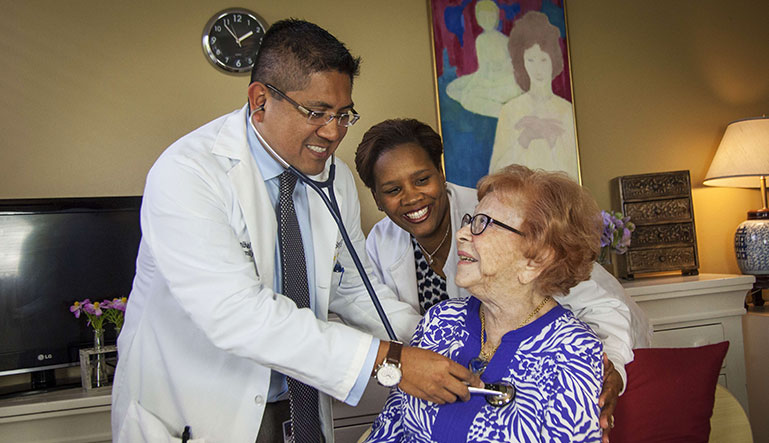Let’s face it, few of us are excited to make a doctor’s appointment. If you feel well and consider yourself healthy, it’s easy to think you don’t need an annual checkup. So, is it really necessary to see the doctor when you aren’t sick?
How frequently you should see a doctor when you feel healthy is a question often debated by adults. This is especially true for those who suffer from white coat syndrome, a term used to describe anxiety experienced during physician appointments. For some, white coat syndrome can be serious enough to cause a rapid rise in blood pressure.
While there’s no hard and fast rule on how often a healthy senior should visit their doctor, at least one wellness visit a year is essential.
4 Reasons Seniors Need a Yearly Physical Exam
- Screenings: A yearly checkup gives your physician an opportunity to evaluate the need for and schedule routine health screenings, such as mammograms and colonoscopies.
- Bloodwork: This visit will also give your doctor an opportunity to order and review routine bloodwork. Cholesterol screening, vitamin deficiencies, and diabetes testing are a few common ones.
- Immunizations: Your doctor will likely discuss an immunization schedule with you. This can include when to get a flu shot and if you need a pneumonia or shingles vaccine.
- Early intervention: When you are feeling great, an annual physical lets your physician confirm there’s nothing wrong. It also gives the doctor an opportunity to identify small issues before they become big problems. For example, frequent headaches might be a symptom of seasonal allergies that can be managed without medication. Your physician can likely offer some suggestions.
Take Advantage of the Medicare Wellness Visit
Medicare Part B and many Medicare Advantage plans will pay for one physician visit each year to assess a senior’s health. If you’ve been participating in Medicare Part B for at least one year, you are entitled to a Medicare Wellness Visit.
Fortunately, your Medicare Part B deductible won’t apply to this visit. However, there may be a co-pay or deductible that applies to any screenings or tests your doctor orders. If you have questions, speak with the billing specialist at your physician’s office for clarification.
Health & Wellness at Five Star Senior Living
Seniors looking for other ways to stay healthy may also want to consider moving to a senior living community. Independent living often provides ample access to activities and facilities. For example, Five Star Senior Living communities prioritize wellness and many offer amenities like pools, walking paths, fitness centers, and more. Dining and nutrition is something we take pride in too.
To learn more about the the healthy lifestyles a senior living community can provide older adults, contact us today!

